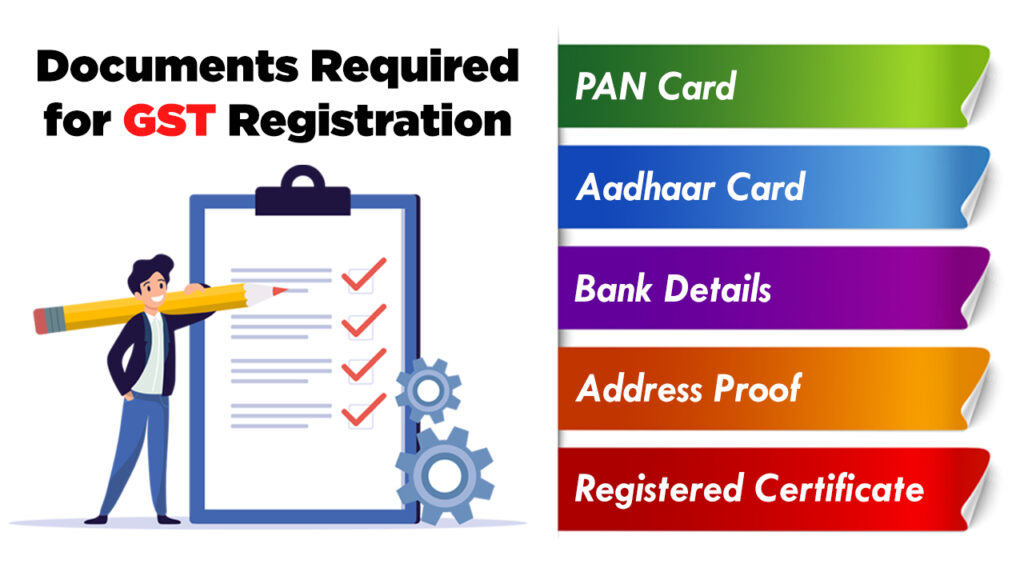Improving Your Singapore GST Registration: A Comprehensive Method
Improving Your Singapore GST Registration: A Comprehensive Method
Blog Article
The Ultimate Overview to Streamlining the GST Registration Process and Needs for Small Company Owners

Recognizing GST Basics
To comprehend the principles of the Product and Services Tax (GST) system, tiny business owners need to first understand its underlying principles and effects. Under the GST regimen, organizations are needed to register and accumulate tax obligation on behalf of the federal government, making sure transparency and conformity.
One of the vital principles of GST is input tax obligation credit scores, which allows businesses to assert credit rating for taxes paid on their purchases. This device protects against the plunging impact of tax obligations and promotes effectiveness in the tax system. Furthermore, GST is a destination-based tax, suggesting that the tax obligation is imposed at the point of consumption rather than the factor of origin. This guarantees reasonable circulation of tax obligation profits among states based upon where the goods or services are consumed. Understanding these standard concepts is essential for local business proprietors to browse the intricacies of the GST system and make sure compliance with the legislation.
Eligibility Criteria for Enrollment
Having actually established a foundational understanding of GST principles, local business owners have to now satisfy certain qualification criteria to continue with the registration process. In India, entities participated in the supply of items or services with an annual aggregate turnover exceeding Rs. 40 lakhs (Rs. 10 lakhs for special category states) are needed to sign up for GST. Additionally, specific services such as those entailed in inter-state supply of products, casual taxed persons, and those called for to pay tax under the reverse charge mechanism must register for GST regardless of their turnover. Companies that were signed up under the previous tax obligation routine (VAT, solution tax, and so on) are additionally mandated to register under GST. Agricultural organizations that just provide produce out of key manufacturing are excluded from GST registration. It is important for company owner to meticulously evaluate their eligibility based on these requirements to make sure compliance with the legislation and prevent any penalties for non-compliance.
Documents Required for GST Registration

Simplified Enrollment Refine Actions
Complying with the collection and verification of the requisite documents, the enrollment process for GST can be navigated via a collection of streamlined actions created to promote reliable compliance for small company owners. The initial step involves going to the GST portal and choosing the 'New Registration' choice. Subsequently, the candidate has to fill out Part A of the GST REG-01 form with details such as PAN, mobile number, and email address to get an OTP for verification. As soon as the OTP is obtained and entered, a Temporary Referral Number (TRN) is produced for additional process. The next action calls for filling in Component B of the kind with necessary organization details, publishing sustaining documents, and completing the confirmation process using DSC or EVC. Ultimately, upon effective confirmation, an Application Referral Number (ARN) is issued, suggesting the conclusion of the GST enrollment procedure. By adhering to these streamlined steps, small company owners can effectively register for GST and guarantee compliance with tax obligation laws.
Tips for Ensuring Conformity
To maintain governing adherence and functional stability, thorough oversight and positive steps are essential in making sure compliance with GST requirements for little organization proprietors. Local business owners need to stay updated with GST regulations, filing due dates, and any type of adjustments in tax prices to stay clear of penalties and maintain a good standing with tax authorities. One essential suggestion for compliance is to maintain comprehensive and exact documents of all transactions, consisting of invoices, billings, and expenditures connected to GST. Frequently reconciling economic documents with GST returns can aid in determining and correcting any disparities promptly. In addition, conducting routine internal audits or looking for expert help can guarantee that the organization is complying with all GST policies properly. It is additionally vital for local business proprietors to invest in GST-compliant accountancy software application that can simplify the tax declaring process and minimize errors. Lastly, participating in GST recognition workshops or training programs can boost understanding and compliance with GST policies, ultimately benefiting the company over time.
Conclusion
To conclude, local business owners must recognize the basics of GST, satisfy the qualification standards, gather necessary documents, and follow the streamlined enrollment process actions to make certain conformity. By simplifying the GST enrollment process and requirements, small company owners can stay clear of penalties and operate their services smoothly within the legal framework - Singapore GST Registration. It is vital for little service owners to remain compliant and informed with GST laws to keep an effective organization operation
Little business owners looking for GST enrollment should ensure they gather check my reference and send the required records to finish the enrollment process efficiently. The documents required for GST registration normally include proof of organization registration or consolidation, PAN (Long-term Account Number) card of the company entity, identity and address evidence of the promoters/partners/directors, pictures, address evidence of the area of business, bank account declarations or terminated cheques, and permission types. Going to GST understanding workshops or training programs can improve understanding and conformity with GST laws, read here eventually benefiting the company in the long run.
By streamlining the GST registration procedure and demands, tiny business proprietors can avoid charges and operate their companies smoothly within the lawful framework. It is important for tiny company proprietors to stay compliant and educated with GST laws to maintain an effective service operation.
Report this page